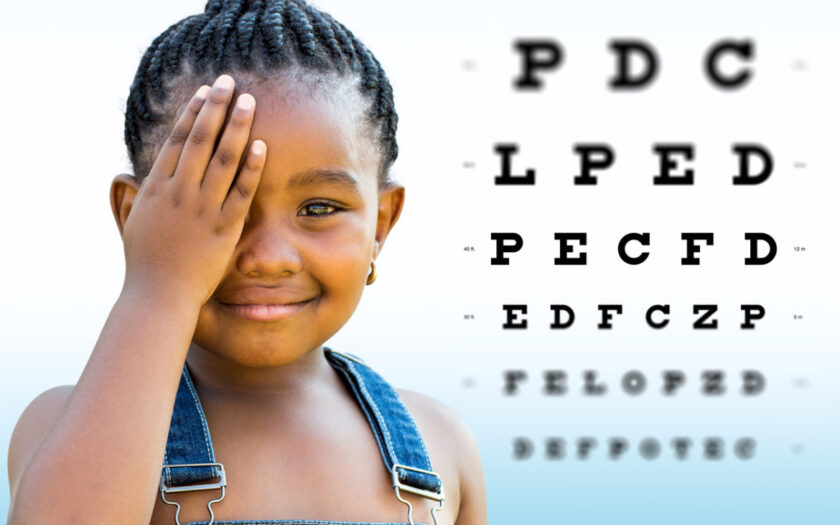Caring for your vision is essential to maintaining good eye health and preventing problems in the future. Regular eye exams are important for detecting early signs of conditions like glaucoma, macular degeneration, or diabetic retinopathy, even before symptoms appear. Protect your eyes from strain by following the 20-20-20 rule—every 20 minutes, take a 20-second break and look at something 20 feet away—especially if you spend long hours on screens. Wearing sunglasses with UV protection can shield your eyes from harmful sunlight, and maintaining a balanced diet rich in vitamins A, C, and E, as well as omega-3 fatty acids, supports eye health. Lastly, avoid smoking and manage chronic conditions like diabetes, as they can affect your vision over time.
Even if you have perfect 20/20 vision, it’s crucial to care for your eyes and protect them from injury or infection to keep them healthy.
Vision Basics
One of the best things you can do for your eyes is to have them checked during regular physical exams. If you experience any vision problems or discomfort, let a parent know so you can see an eye specialist.
An ophthalmologist is a medical doctor specializing in eye care, including the diagnosis and treatment of eye diseases. An optometrist, while not a medical doctor, can diagnose and treat many of the same conditions, except those requiring surgery.
It’s recommended to have your eyes examined at least every two years, or more frequently if you have a family history of eye problems like glaucoma or early cataracts.
Common Vision Problems
Many myths exist about eye health, such as the idea that sitting too close to the TV or reading in dim light can ruin your eyes. While these activities can cause eye strain, they won’t permanently damage your vision.
Common vision problems often arise due to the shape and size of the eye. People with perfect 20/20 vision typically have round eyes. Those who need corrective lenses often have differently shaped eyes.
- Myopia (Nearsightedness): This common condition affects many teens, making it hard to focus on distant objects. It occurs when the eye is slightly longer than normal, causing light to focus in front of the retina rather than on it. Glasses or contacts can easily correct myopia.
- Hyperopia (Farsightedness): People with hyperopia have difficulty focusing on close objects because their eyes are too short from front to back. Light focuses behind the retina, resulting in blurry vision. Significant farsightedness can be corrected with glasses. Interestingly, many babies are born farsighted but often outgrow it as their eyes develop.
- Astigmatism: This condition occurs when the cornea isn’t perfectly round, affecting vision both near and far. Contact lenses or glasses can correct this irregularity.
Once the eyes have fully developed around age 18, some choose refractive surgery to correct vision problems like myopia, hyperopia, or astigmatism. This laser procedure reshapes the eye to improve vision without the need for glasses or contacts.
Dealing With Eye Problems and Injuries
If you injure your eyes or experience issues like redness, pain, or vision changes, see an eye specialist immediately. For minor issues like foreign objects (sand, sawdust, etc.), avoid rubbing the eye and flush it with lukewarm water. If the problem persists, seek medical attention.
One common eye injury among teens is a scratched cornea, often caused by contact lenses or sports. Symptoms include redness, irritation, tearing, and light sensitivity. If you suspect an eye injury and wear contacts, stop using them until you see an eye specialist to avoid further damage or infection.
Caring for Your Eyes
Protecting your eyes is essential, just like wearing a seatbelt in a car. Sunglasses with UV protection help shield your eyes from harmful ultraviolet light, reducing the risk of conditions like cataracts and macular degeneration.
Always wear protective eyewear when playing sports or working on projects that pose a risk to your eyes. It’s also wise to avoid fireworks and other potentially dangerous activities that could harm your vision.
Preventing Eye Strain
Extended computer use can cause eye strain because it reduces your blink rate. To combat this, remember to blink frequently and occasionally focus on something across the room. If your eyes feel dry, use artificial tears, but avoid products that merely reduce redness.
Special Care for Certain Conditions
If you have a medical condition like diabetes or juvenile rheumatoid arthritis, you’re at a higher risk for eye problems. Regular eye exams, at least once a year or as recommended by your doctor, are crucial to detect and manage potential issues early.
Preventing Eye Infections
Conjunctivitis, or pinkeye, is a common eye infection caused by viruses, bacteria, allergies, chemicals, or irritants. It can spread easily through contact. To prevent eye infections:
- Avoid sharing eye makeup or drops.
- Do not touch the tip of eye drop bottles to your eyes or hands.
- Never use saliva to wet contact lenses.
- Wash your hands regularly.
Glasses and Contacts
If you need glasses, smaller frames generally provide better vision with less distortion. For contact lenses, follow your eye doctor’s instructions for cleaning, wearing duration, and replacement to avoid infections or ulcers.
Your eyes are invaluable, so protect them now to keep your vision clear for years to come.



